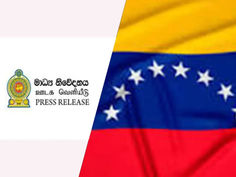Singapore Assesses Impact of Trump’s Pharmaceutical Tariffs Amid Exemption Plans
- Rahaman Hadisur

- Oct 5, 2025
- 2 min read
Hadisur Rahman, JadeTimes Staff
H. Rahman is a Jadetimes news reporter covering Business

The upcoming pharmaceutical tariffs announced by the Trump administration may have “no immediate impact” on Singaporean drugmakers, as many could qualify for exemptions, Deputy Prime Minister (DPM) Gan Kim Yong said on Saturday (Sep 27).
DPM Gan, who also serves as Trade and Industry Minister, noted that “many of them already have plans to invest [in the US], so tariffs may not have immediate impacts on their exports.” At the same time, major pharmaceutical firms are continuing discussions with the US administration to clarify the conditions and criteria tied to the new tariffs, including whether plants still in the planning stage would qualify for exemptions.
The tariffs, set to take effect on Oct. 1, impose a 100 per cent duty on imports of branded or patented pharmaceutical goods unless a company has already begun constructing a US facility. Companies that have broken ground on US plants are eligible for exemptions.
Singaporean pharmaceutical exports to the US total approximately S$4 billion annually, representing about 13 per cent of the country’s domestic goods exports. A significant portion of these exports comprises patented, branded medicines that fall under the tariff scope. Singapore is also home to nine of the world’s top ten pharmaceutical firms.
DPM Gan emphasized that Singapore is engaging in bilateral discussions with the US on pharmaceuticals and semiconductors, exploring measures such as tariff rate ceilings similar to recent trade agreements with Japan and the European Union. He cautioned that these negotiations will take time due to the complexity of details involved.
The government is also looking at broader economic resilience amid rising global tariffs, with the Singapore Economic Resilience Taskforce reviewing long-term strategies. Two support measures have been announced: the Business Adaptation Grant, capped at S$100,000 per company, and the Graduate Industry Traineeships scheme for recent graduates, both aimed at helping businesses adjust to the evolving trade environment.
DPM Gan stressed the importance of strengthening Singapore’s competitiveness to remain relevant in the global economy amid growing protectionist measures worldwide.











































Comments